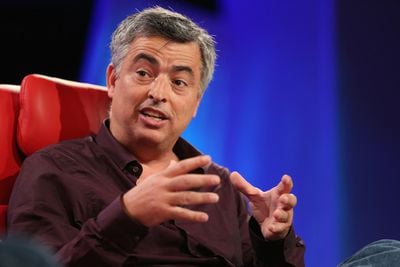In a new interview, Apple's Eddy Cue spoke with Fortune about the e-books pricing scandal that has plagued the company over the past several years. After a July 2013 judgment found the company guilty of conspiring to fix prices of electronic books, and a settlement in a class-action lawsuit was reached over the summer, the Apple negotiator at the center of the lawsuit has shared his thoughts on the case with Fortune ahead of Apple's appeals court appearance later this month.
The specifics of the case lie in the opening of the iBooks Store and the 17 percent industry-wide increase in e-book prices following its unveiling in April of 2010. Cue, Apple's "master negotiator", played a key role in convincing five of the then-six major publishing houses to start selling e-books through Apple's new store alongside the launch of the iPad. Part of the deal involved a shift in the pricing model for the entire e-books industry, eliminating Amazon's previous pricing advantage in which it would sometimes sell books at a loss in order to attract customers to Kindle hardware and other Amazon products.
These events led the Justice Department and thirty-three state attorneys general to sue Apple and those five publishing houses for horizontal price fixing in violation of the Sherman Act. While the publishing houses settled the lawsuits, Apple declined to do so and proceeded to trial in the federal case where the company was found guilty.
“Is it a fact that certain book prices went up?” asks Cue. “Yes. If you want to convict us on that, then we’re guilty. I knew some prices were going to go up, but hell, the whole world knew it, because that’s what the publishers were saying: ‘We want to get retailers to raise prices, and if we’re not able to, we’re not going to make the books available digitally.’ At the same time, other prices went down too, because now there was competition in the market.”
A settlement in the separate state and class-action consumer lawsuit worked out this past June sees Apple paying around $450 million if the company loses its appeal in the federal case and nothing if it wins. The case has dragged on far longer than most expect, and Cue argues that the company is fighting more for reputation than for monetary reasons.

“We feel we have to fight for the truth,” says Cue. “Luckily, Tim feels exactly like I do,” he continues, referring to Apple CEO Tim Cook, “which is: You have to fight for your principles no matter what. Because it’s just not right.”
Cue met with all six CEOs of the major publishing houses before the original iPad launched, and discovered most wanted the cost of e-books at price points both he and Steve Jobs considered too high. Cue proposed price tiers tied to the suggested retail prices of the hardback versions of the books.
As part of the shift to a new "agency model" of pricing similar to that used in the App Store, Cue also proposed a "most favored nation" clause, allowing Apple to match the price at which any retailer was selling a new e-book. When the iPad launched a few weeks later, most iBooks were priced between $12.99 and $14.99, higher than Amazon's typical $9.99 price point for best sellers but in the range of where publishers wanted to be selling their books. The agency model quickly became the industry standard, with Amazon also being required to adopt the pricing at the insistence of the publishers.
The sequence of events led Judge Denise Cote to rule in July 2013 that Apple was guilty of e-book price-fixing. When asked how he looks back on the "nightmare", Cue plainly stated, "If I had it to do all over again, I’d do it again. I’d just take better notes."
Apple will appear before the federal appeals court on December 15.


















